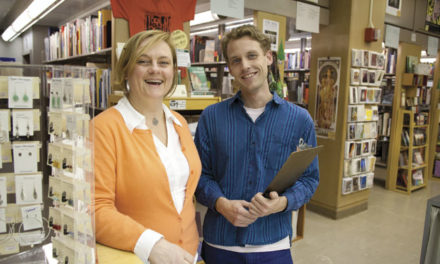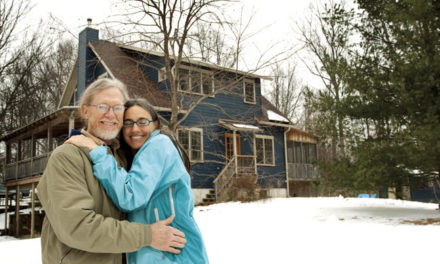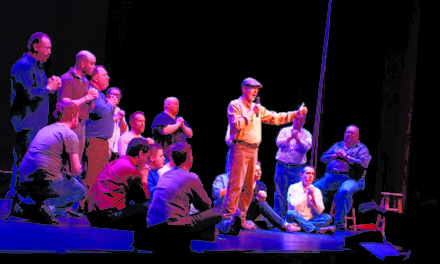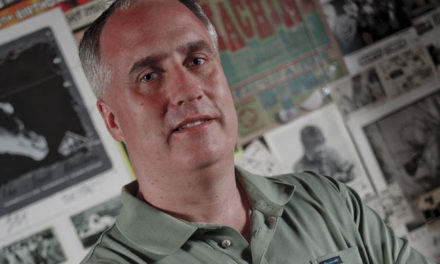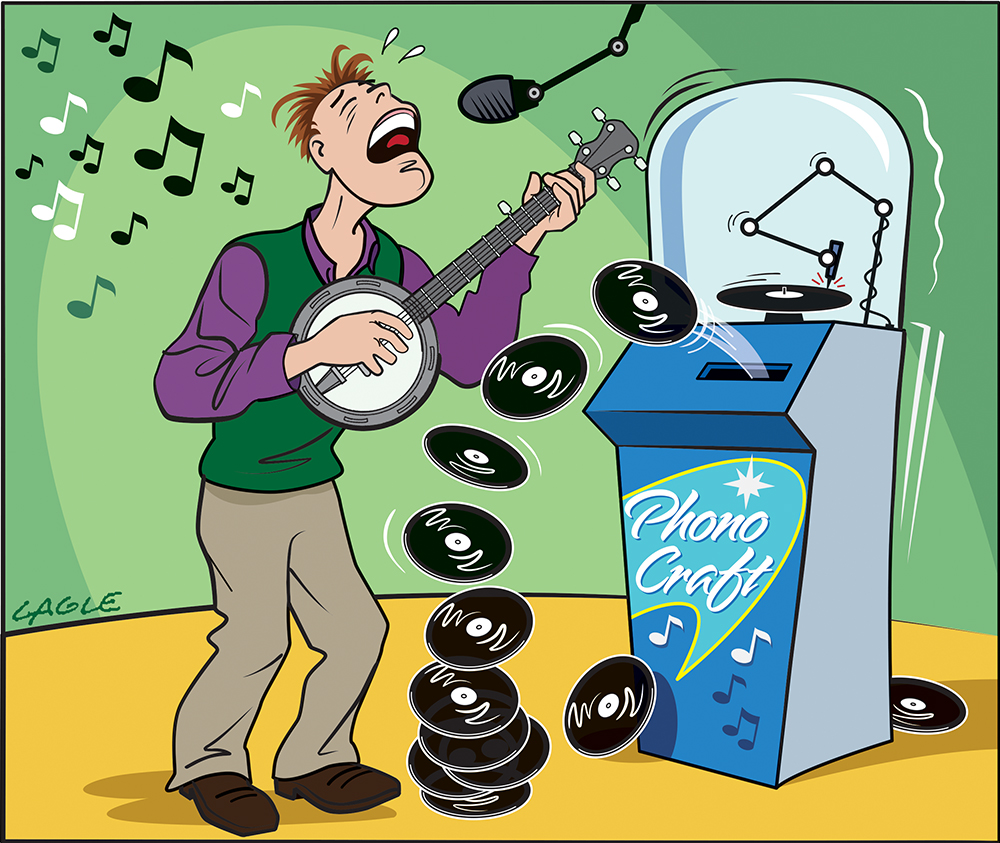
For more information, visit phonocraftrecordmfg.com and oltimeyrecordings.com.
BY CRAIG COLEY
In the early 1950s, about the time Elvis Presley cut a record and changed the sound of popular music, anyone could walk into a recording booth at a drugstore, pay a couple of bucks, perform a song, and have it etched directly into vinyl. Now, Phonocraft Record Manufacturing has resurrected that technology, offering one-off and small-batch records.
“You just perform your song, and right after you perform, we’ll hand the record to you,” says Phonocraft co-owner Jack Kilby. A record can be cut from a pre-recorded song just as easily. “The other day a kid walked in with a cassette of his dad’s band from the 70s, and he walked out with it on record,” Kilby says. “We’re selling immortality.”
Phonocraft opened in Artisan Alley, 222 W. 2nd St., in February, combining the home-based businesses of Kilby, 47, and Eric Hunt, 35. While mass-produced records are pressed onto vinyl by a stamping disc, Phonocraft uses a process that is the obverse of playing a record. Whereas a record player converts the motion of the needle in grooves into an electrical signal that is sent to an amplifier, a record lathe converts an electrical signal into motion in a needle that has enough downward torque to cut a groove into a blank vinyl disc spinning on a platter.
A fusion of vintage and contemporary technologies is at the heart of the business. While Phonocraft’s equipment was made in the 1940s and produces only mono records, today, Kilby says, most customers are hip-hop artists who send their music out via the internet. In fact, Kilby bought his first record lathe 20 years ago when he was a hip-hop DJ and wanted to make his own records for scratching.
The learning process involved much trial and error, says Kilby, and the materials—blank vinyl and acetate discs—were scarce and expensive, so he experimented with cutting music onto the flat bottom of Solo brand plastic plates, the kind sold in supermarkets for picnics. The result sounded like an old 78-rpm record, and he started a novelty record label called Ol’ Timey Recordings.
“If you have the right music, it sounds like it’s old,” Kilby says. He would know. His day job, paradoxically, is digitizing Indiana University’s collection of 78s, LPs, and films.
Phonocraft sells vinyl records in 7-inch, 10-inch, and 12-inch discs, either one-sided or double-sided. A double-sided, 7-inch record costs $30 for one, but less than $10 when 25 or more are ordered.
For more information, visit phonocraftrecordmfg.com and oltimeyrecordings.com.


